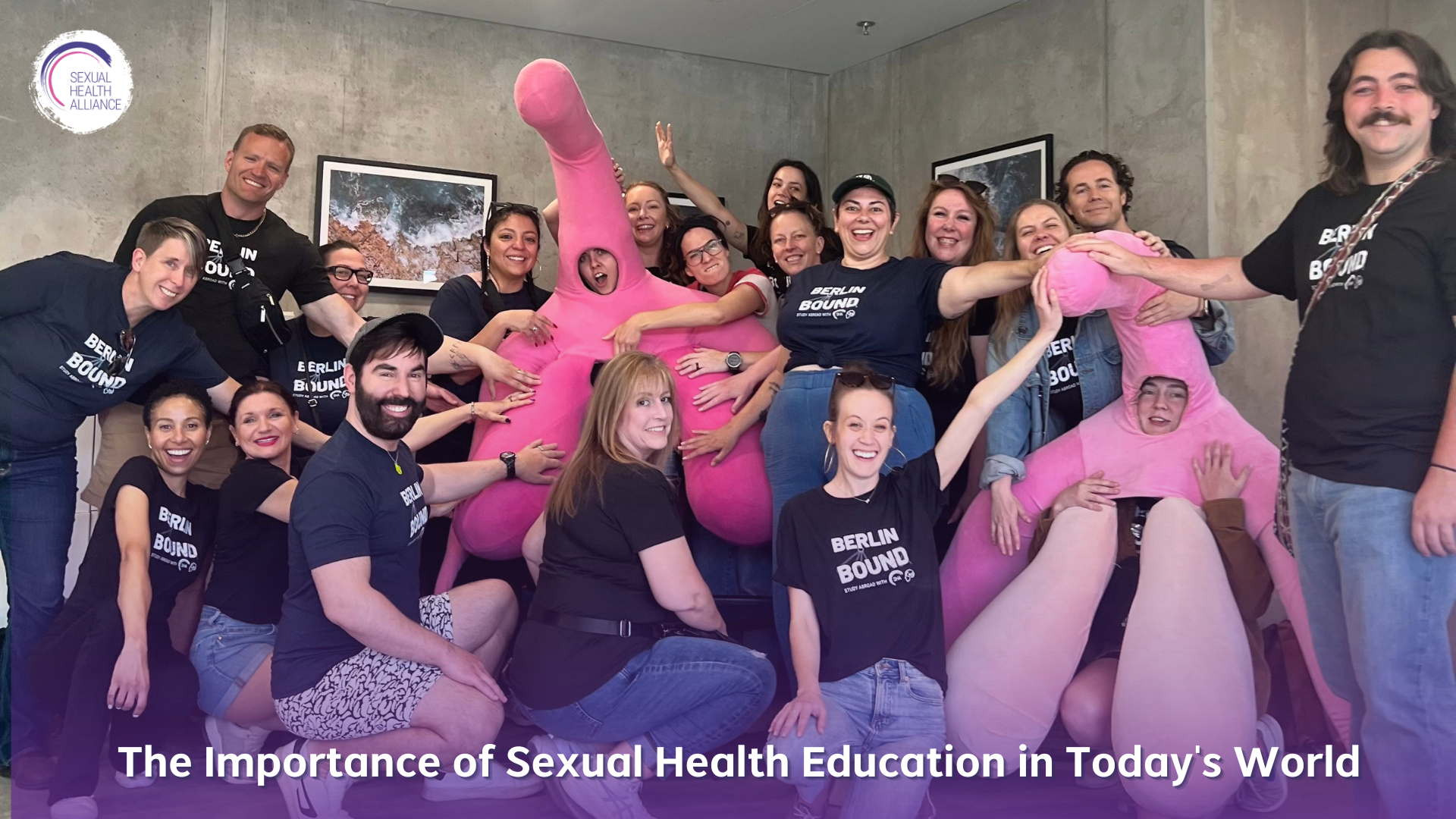Let's chat about something super important and at the heart of everything we do at Sexual Health Alliance: sexual health education. In today’s world, where sexual health is FINALLY being recognized as a vital component of overall well-being, comprehensive sexual health education is more crucial than ever. It’s not just about knowing the mechanics or avoiding unwanted outcomes – it’s about fostering a healthy, informed, and inclusive understanding of sexuality. Modern sexual health education has come a long way! Let’s get into the details about why it’s so important, and you can learn about a special event for sexuality professionals and those interested in sexual health education happening this October.
Why Comprehensive Sexual Health Education Matters
First off, let’s talk about what we mean by "comprehensive" sexual health education. This isn’t just the basics. Comprehensive sexual health education covers a wide range of topics including anatomy, consent, relationships, gender identity, sexual orientation, pleasure, and the importance of communication. It’s designed to be inclusive, age-appropriate, and culturally sensitive, ensuring that everyone can benefit from the knowledge, regardless of their background or identity. Here are three key components of comprehensive sexual health education.
Empowering Individuals: One of the biggest benefits of comprehensive sexual health education is that it empowers individuals to make safer, healthier choices. When people are informed about their bodies, rights, and options, they are better equipped to navigate their sexual lives. This means they can make decisions that align with their values and desires, rather than being influenced by misinformation or societal pressures.
Reducing Risks: Knowledge is power, and in the case of sexual health, it can literally save lives. Comprehensive sexual health education helps reduce the risks of sexually transmitted infections (STIs), unintended pregnancies, and sexual violence. When people know how to protect themselves and their partners, they are less likely to engage in risky behaviors. This education also promotes the use of protection methods and encourages regular health check-ups, which are essential for early detection and treatment of any issues.
Promoting Healthy Relationships: Healthy relationships are the cornerstone of a happy life, and sexual health education plays a huge role in this. Learning about consent, communication, and respect helps individuals build stronger, more respectful relationships. It also provides the tools to recognize and address unhealthy or abusive behaviors. By fostering an understanding of mutual respect and consent, comprehensive education helps prevent abuse and promotes positive, consensual interactions.
The Push for Modern Sexual Health Education Reform
Despite the clear benefits, sexual health education is still a contentious topic in many places. Ask any sexuality educator, counselor, or therapist and they will tell you about the challenges they often face. This is why advocacy for educational reform is so important. We need to push for curricula that are comprehensive, inclusive, and evidence-based. This means supporting policies and programs that prioritize sexual health education and ensuring that educators have the resources they need to teach these topics effectively. So, how can we support comprehensive sexual health education? There are a few key steps we can take:
Advocate for Policy Changes: Support policies that mandate comprehensive sexual health education in schools. This includes contacting your local representatives and participating in community discussions.
Educate Yourself: Whether you’re an educator, a parent, or just someone who’s curious, take the time to learn about sexual health. There are plenty of resources available, from books and online courses to workshops and conferences. (Note: Sexual Health Alliance is a great place to find both in-person and online educational workshops.)
Create Safe Spaces for Discussion: Encourage open, honest conversations about sexual health. This can be in classrooms, at home, or within your community. The more we talk about these topics, the more we normalize them and reduce stigma.
Use Inclusive Language and Materials: Make sure that the information you’re sharing is inclusive of all genders, sexual orientations, and cultural backgrounds. This ensures that everyone feels seen and respected.
SHA’s October Sexological Conference: Sexual Health Education in Action
Speaking of resources, let’s talk about something exciting happening in October 2024 – Sexual Health Alliance (SHA) is hosting their Annual Sexological Conference! This event is a fantastic opportunity for educators, health professionals, and anyone interested in sexual health to learn, share, and grow. The conference will cover a wide range of topics, from the latest research in sexual health to practical teaching strategies and inclusivity in education. It’s the perfect place to get inspired and gather the tools you need to make a difference in your community. Remember, this is an event for EVERYONE! You don’t have to be a sexuality professional to attend.
The conference headliner is sex and relationship therapist, author, educator, and sexologist Dr. Chris Donaghue. He is the best-selling author of Rebel Love and Sex Outside the Lines. He has also appeared in the media on TV shows, radio, podcasts, and various publications. Along with presentations by Dr. Chris Donaghue, the October SHA Sexological Conference includes a panel of hand-selected speakers. If you’re interested in connecting and learning from the greatest in the field of sexology, this is the event for you!
Click here to get your ticket to SHA’s Annual Sexological Conference now!
Are you destined to lead in the field of sexuality? Find out which SHA certification aligns with your vision! Click here to take the 'Shape the Future of Sexuality: Which Certification Is Your Calling?' quiz and step into your power today.




